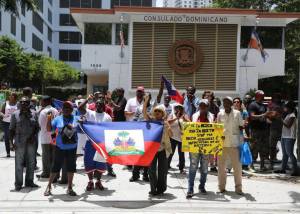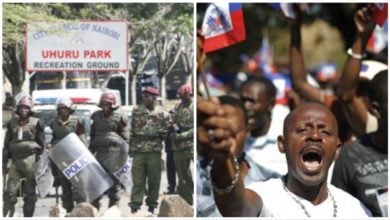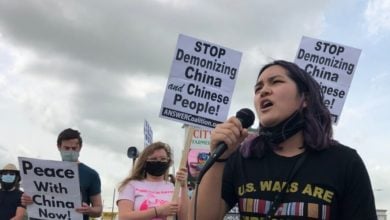Orginally published in Liberation Newspaper, August 2015
A wave of anti-Haitian violence has spread across the Dominican Republic in recent months, encouraged by the enforcement of a racist, anti-immigrant ruling that could lead to the expulsion of up to 300,000 people. In June, the deadline expired for Dominicans of Haitian heritage to apply for resident permits or naturalization papers, as required by a recent law that strips citizenship from any person born after 1929 who does not officially have a parent of Dominican nationality.
Much of the Haitian-descendant population came to the Dominican Republic as laborers, often being so oppressed that their children, over the decades, never received birth certificates from the country where they were born and raised. This population speaks Spanish rather than Haitian Creole, and has lived in the Dominican Republic for generations. Many who will be deported to Haiti have never been there.
The majority of the population of Haitian descendants are survivors of the 2010 earthquake that killed approximately a quarter of a million people in Haiti, impacting every family on the Haitian side of the island shared with the Dominican Republic.
While stirring up racist, anti-immigrant hatred, the Dominican government has made only minimal effort to inform the impacted community of the “legal status” change—that they are not citizens of the country where they were born—or to process their citizenship papers. Without official documents, Haitians are prevented from going to school, accessing medical care and getting legal employment.
Imperialism, racist scapegoating drives anti-Haitian campaign
Economically, Haiti is the poorest country in the Western Hemisphere, ravaged by French colonizers and then U.S. imperialism. Exactly 100 years ago the United States invaded, robbing Haitians of vast expanses of land to hand over to U.S. agribusiness. Some 30,000 people were massacred before the troops left in 1934.
From 1957 to 1986, each struggle by the Haitian people to improve their lot was crushed by the U.S.-puppet Duvaliers. Jean Bertrand Aristide’s
presidency, made possible by the popular Lavalás movement, was thwarted by a U.S.-engineered coup.
After the 2010 earthquake, greedy “non-governmental organizations” and corporations came in to roost, blocking real aid to Haiti while profiteering from their misery.
Tens of thousands of Haitian immigrants were forced to emigrate for survival. Although the Dominican Republic is also undergoing economic
crisis and high unemployment, the Dominican average income is almost $10,000—still poverty—while in Haiti it is an abysmally low $1,300 per year. At the root of the Dominican ruling class hostility is also the ideology of “blanqueamiento”, the racist idea that the population should be “whitened”, a sentiment long inculcated by elites in the Dominican Republic and many Latin American countries.
The Dominican ruling class, used “anti-haitianismo” to build domestic support. U.S. imperialists intervened in the Dominican Republic in 1904,
and occupied the Dominican Republic again from 1916 to 1924. Rafael Trujillo, the U.S.-backed dictator from 1930 to 1961, promoted vicious
anti-Haitian sentiments throughout his rule. When Juan Bosch from the Dominican Revolutionary Party was elected president in 1962 on a leftist platform, the U.S. military invaded again. Today, the Dominican government is still in the U.S. orbit.
It is a myth, however, that there is some eternal hatred between Dominicans and Haitians—as portrayed in the mainstream media. In fact, stretching back to the colonial era, there were many examples of Dominican-Haitian solidarity against imperialism, and radical forces in both countries are still building solidarity today.
The racist, mass deportations have not gone unchallenged. In cities and towns across the Dominican Republic, Haiti and the United States, the
people are denouncing the scapegoating of Haitian immigrants and Dominicans of Haitian descendancy through demonstrations and mass education. This is a crucial moment for the movement against racism and police brutality in the United States to show international solidarity in the spirit of the heroic Haitian revolution.







